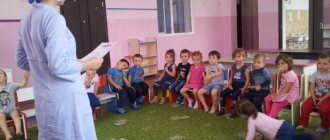Are you organizing a professional skills competition or are you just thinking about this idea? The task is not easy, but the result is worth it. To implement your plans, you will have to master a large amount of information. You need to find out how the rules of the event are developed, choose the right jury, and carry out competent promotion of the competition. You can understand these and many other points by reading this article.
Development of competition rules
First of all, you need to clearly understand what is required of the participants. That is, what they should do, and what the result of their work should be. This is necessary to implement any ideas, search for interesting specialists, as well as PR in a professional environment. Only then can work on creating rules as a whole begin.
They must include the following information:
- timing (stages, if necessary);
- description of conditions (who can participate, number of prize places, etc.);
- requirements for the submitted work (as detailed as possible);
- procedure for determining the winners.
If necessary, other items can be added.
Choice of prizes
The prize is usually the main reason to take part in the competition. What can be given as a gift to the winner?
- Money.
- Material values.
- Certificate.
- Placing information in the thematic TOP, prestigious ratings, and so on.
In fact, the reward can be anything. Whatever you have enough imagination and finances for. The main thing is that it motivates the participants.
If you choose material assets as a prize, decide where you will get them from. Will your own resources be enough or will you have to attract sponsors in exchange for advertising?
Promotion
For the competition to be successful, people must know about it. Otherwise, who will participate in it? Event promotion is very important! Promotion methods may vary. They are selected depending on the type of event, the nature of the customer’s activities and other factors. In particular, advertising is possible on such platforms as:
- thematic publications;
- exhibitions, seminars;
- professional forums.
If the competition is really worthwhile, and the prizes are worthy of attention, then rest assured that the effect of “word of mouth” will not be long in coming.
Interesting education
Dear friends! Today, on the threshold of school, I was greeted by good news: my lesson development became a prize-winner at the regional stage of the regional competition “My Best Lesson.” The head teacher of our school congratulated me on this pleasant victory. And she asked me: “And how do you always succeed?” Indeed, if my developments rarely take places in the region (the last time in my memory it was the competition “My Best Writing Lesson” and it was a darn sure thing), then in municipal competitions luck smiles on me much more often. Regional stages... they, you know, are usually very, um, biased... But in competitions at the municipal level, I am sure that each of us can (and should) win.It is not difficult. It is enough to follow a number of simple rules and apply a little more effort than we are used to. Here they are, my simple rules:
Rule one. Carefully study the instructions and/or the Competition Regulations.
Very often we ignore the Regulations on the competition. We sincerely believe that a good lesson summary cannot be appreciated because of an incorrectly designed cover. Alas. They can. A formal reason to find fault will be immediately used against you if you give this reason. I will say for myself (and I am a member of countless commissions), it will be used if only out of laziness: one less work to read :-) The last one, of course, is a joke. It’s not a joke that when you take such a development into your hands, your pride immediately speaks out: “They don’t consider it necessary to bring the work to fruition, and now you have to evaluate it?!”
Therefore, we are not lazy. Let's read. Our development should:
- Comply with the theme of the competition as stated in the Regulations.
- Comply with the volume specified in the Regulations.
- Comply with other technical requirements of the Regulations.
- Be original.
The latter may not be stated in the Regulations, but is assumed a priori. Almost always you are required to provide an electronic version of the development. This is done primarily in order to check it on Anti-Plagiarism (a special site that finds out which part of the work you simply “copied and pasted” from the Internet). If you do not write all the fragments of the lesson yourself, you can use a paid service to increase the originality of the text.
I teach how to increase the originality of a text with my own hands in my course “Students’ project activities: how to win the project competition?”
I invite everyone!
Attentive attention to the above characteristics of the work will help you get a higher score in the competition: the assessment of technical components is included in almost all competition evaluation sheets. The latter, by the way, are usually also published in the Regulations, and after reading it, you will know how your development will be assessed.
Rule two. Use modern, up-to-date methods and pedagogical technologies.
Not even that. It’s clear that you use them in your work and, accordingly, in your development. Without this - nowhere. But let's call them in the development itself. After all, it is not necessary that the member of the commission evaluating your development understands (or internally agrees) that defending a presentation is an element of project technology, and a rebus task is an element of gaming technology.
Therefore, we boldly write in development: “Stage No.... Protection of presentations (project technology).” Or: “Stage No.... Working on a rebus task (game technology).”
If we talk about a lesson compiled in accordance with the Federal State Educational Standard, then it is most appropriate to use (and mention) such pedagogical technologies as:
- “dialogue of cultures”;
- gaming technologies;
- information and communication technologies;
- communicative training;
- problem-based learning;
- design technology;
- developmental training.
This is the basis without which your FGOS development “does not work.” Therefore, you should not neglect them.
Rule three. Greater emphasis on the student's activities in the lesson, rather than on the teacher's activities.
This rule is directly related to the previous one. After all, all modern pedagogical technologies are activity technologies. It follows from this that all development is based not on what the teacher voices, but on what the student does and how.
How can you check to what extent the activity approach is being implemented in your work? With it, the student is not an object, but a subject of activity. To be a subject is to be the master of your activity. Therefore, during the lesson the student should:
- set goals
- to solve problems,
- be responsible for the results.
If these points are fulfilled, then you are on the right track.
Rule four. Don't be shy to praise... yourself.
This rule is implemented in two positions: on the cover and in the development portfolio.
Speaking of the cover. Remember how Ilya Ilf wrote about the “British Encyclopedia”? They corrected it, corrected it, and got it wrong on the cover. I highlight the letter “y” on purpose, since for those unfamiliar with the quote, the irony may pass by. After all, how do we read? Like that:
“According to rzeuzlattam ilssoevadniy odongo anligsyokgo unviertiseta, not ieemt zanchneiya, in kaokm proyakde rsapjooleny bkuvy v solva. Galovne, so that the preavya and pslonedaya bkvuy blyi on the mseta. Osatlyne bkuvy mgout seldovt in a ploonm bsepordyak, everything is torn tkest chtaitsey without wandering. The main thing is that we don’t think about each other separately, but all together.”
And this is also the reason why we miss mistakes. To my shame, I always write (type) quickly and, in order not to fall into perfectionism with endless revisions, I read what I have written fluently. And now I’m thinking, how many “encyclopedias” did I miss in this article?
So here it is. About the cover. The cover is the face of the work. Firstly, you can’t show off on it, and secondly, you need to brag on it.
Bragging is bad. This is what we tell our children. And they don't really believe us. Especially if in our office our “VDNH” is hung in beautiful frames - certificates, diplomas, letters of gratitude...
So here it is. The cover is where you can show off too. Not only that: it is necessary.
I always write something like this on the cover:
“Author of the work: a teacher of the highest category, laureate of the regional pedagogical competition “So-and-so”, winner of the regional pedagogical competition “Edakiy”... etc. Solodky M. B.”
You will laugh, but this technique pays off very often.
The same effect is provided by a mention on the cover (if the Regulations of the competition do not prohibit the participation of prize-winning works of other competitions) that the work was highly appreciated in such and such a place. (This is why it is worth taking part in your work, for example, in our increasingly popular methodological development competition “Knowledge Light”.)
What is this connected with? With laziness, of course. Too lazy to read. And here is a prize-winning work. So someone has already read it. So everything is fine there. But experts, like many of us (like us when we are experts!), fall for the bait not only of their laziness, but also of the idealization of public opinion (here, the opinions of the professional community). But sometimes we simply don’t think about how dominant and determining the role it plays in our professional life. And this opinion says: if the author has credentials, it means he read everything “for you” and did it “right.” So, more points here.
The actual winnings in other competitions, as well as the fact that the development was published, do not have to be indicated on the cover. It’s worth creating a portfolio application for your development.
Currently, portfolios are a trend in Russian education. They talk about the portfolio of a school student, the portfolio of a student and teacher, the portfolio of a job applicant, a course graduate, etc. However, almost no one talks about the portfolio of a competitive work. What does it consist of and why is it needed?
Today there are three main types of portfolio:
- "Portfolio of documents"
- "Portfolio of works"
- "Portfolio of reviews."
We will be interested in all of them. Why? Because we will add to our competition work:
- Documents about victories in other competitions, for example, in the “Knowledge Light” competition; documents on the publication of work, for example, in our Almanac.
- Student works (best works) completed during the implementation of competitive development in teaching practice: essays, drawings, crafts, programs (depending on our subject).
- Feedback on our development. (By the way, you can read how to write a review in this article of mine.)
Trust my humble experience, you will significantly increase your chances of winning by creating such a portfolio!
Rule five. It's the last one. Teamwork.
This rule is based on the reviews I mentioned above for the lesson. What do I mean by “teamwork”?
We are all far from ideal. Our private views on things often sin against the truth. We tend to attribute our biases to the majority. Pedagogical overconfidence makes teachers intolerable participants in advanced training courses. I worked on them, on courses, I know what I’m saying (And this year I was invited to a university to give lectures to teachers in advanced vocational education, so I have the opportunity to refresh my impressions :-). As I noted, it is more difficult than teachers to teach only doctors. Everything I have listed makes us weak players in the field of the Education System. We cannot therefore look at the matter as a whole, as Suvorov, who never lost his battles, strongly advised, because our shortcomings distort the overall picture for us. And therefore, in pedagogical activity, in its new conditions, collective teams are becoming more and more successful.
The team is your voluntary critics, advisors, focus group and reviewers. A team is the people with whom you share your experience and who pay you for it with their knowledge. The team is the crucible through which any work should be passed: a pedagogical project, educational research or a competitive essay. Before the work “goes out into the world”, it should be read as much as possible and evaluated on the spot - by your like-minded people.
Teams are different. Unfortunately, not everyone can boast of a close-knit team. But even in a scattered team, you cannot help but find at least one interested person - a friend, comrade, brother, godfather, matchmaker. And let him look at your development. And even better, a lesson taught on it. And he will give you advice. A mind is good, but two is even better.
Good luck to you and your friends!
Best regards, Administrator
based on scientific work by M. B. Solodky
Alternative organization option
As you can see, organizing a competition is a rather difficult task. It requires not only financial investments, but also a lot of time and effort. Coordination of all processes will require full-time employment of at least one specialist. If you can’t entrust this to any employee from your company, or handle the event yourself, and you don’t want to hire staff under a contract, contact us.
Competitions for architects, designers and decorators are held on the STAROFDESIGN platform. Working with a project is an excellent chance for companies to hold an event with a minimum of effort. Organizing and holding a professional skills competition at https://starofdesign.ru/organizers/ will allow you to avoid headaches from promoting the event, selecting a jury, and developing conditions. Leave a request and start your journey to hosting an exciting event!
Requirements for competition materials:
— presentations are not accepted for participation in the competition; the presentation can only be as an appendix to the main text of your work. You can read how to post a presentation on a blog here ;
— materials for which Certificates of Publication have been received or that participate in other competitions are not accepted for participation in the competition;
— texts must be previously not published on the Internet or other publications;
— materials must be original, interesting and useful for our readers;
- a description of the work must be provided (at least 2-3 full sentences): what category of educators (educators, teachers, parents...) will find this material useful; for children of what age (group, class) is your material intended; describe the use of your material in the educational process.
— the submitted material must indicate the purpose, objectives...
- if you used any sources when compiling materials (for example, poems by famous poets, aphorisms or quotes from famous people, descriptions of teaching methods or other sources), then you must indicate the authors of these sources;
— if photographs, pictures, drawings, diagrams are used in the design of the material, then they must be at least 700 pixels in width, the pictures must be bright in jpg format. Photos and pictures should not contain any extraneous inscriptions (dates, logos, etc.)
If in the text of your work, clarity (cards, diagrams, mnemonic tables, crosswords, scanwords, templates, patterns, stencils, presentation...) plays a huge (main) role, then you need to send all the material, including visual (didactic) equipment, before writing your application, to us by email [email protected] We will add it to your material, and only after that you will need to leave a request.
— materials with practical content are not accepted without photos (illustrations). There must be at least five photos. There should be no children or adults in the photo. How to properly organize a master class is recorded in detail here
— notes of classes (lessons, events) must contain clarity: photos, illustrations, pictures or presentation. All these photos must be without logos of third-party sites, of good quality, and at least 700 pixels in width.
The volume of text must be at least 2 printed pages (Times New Roman fonts, 14 point size only. Line spacing - single). The text volume is at least 3000 characters.
You should not use: headers and footers, footers, embedded objects, frames (labels), frames and fills, objects drawn using MS Word.
The text should not contain links to third-party sites. Only the Authors of poems, works and aphorisms can be indicated in the text.
In the text you can indicate links to materials (articles) posted on our portal.
You can insert a video from YouTube into the text. You can see how to insert a video into text here.
Bulleted lists can only use standard characters.
It is not allowed to make abbreviations like: V, Vol, R-k, U-k, Ved. etc. It is necessary to write in full: Educator, Child, Student, Leader, etc.
— we reserve the right to edit your work and change the title of the work taking into account your content;
Additional terms and conditions.
Participation in the Competition means acceptance of the following conditions:
● the organizers of the Competition do not enter into correspondence with participants whose applications were rejected (did not meet the requirements of the Competition);
● the organizers of the Competition reserve the right to use the materials provided for the Competition at their discretion.
If it turns out that your work has already been posted on other sites, or you have violated someone’s Copyright, then the work will be removed from the competition and all previously issued documents will be canceled. Your work remains on the site.
Answers to frequently asked questions
What to do if the material contains a Presentation?
After posting the material on the blog, you send the presentation to us by email
You must send the presentation before writing an application to participate in the competition. After the presentation appears in your material, you submit an application to participate in the competition. We post presentations within 1-2 days.
The subject line of the email should indicate “Presentation for my blog material.” Presentation requirements are listed here
You can also, additionally, instead of slides, insert into this material photos and pictures that your presentation contains (all photos and pictures must be in jpg format, of good quality and without logos of third-party sites, photo size is at least 640 pixels in width).
Why was the methodological development (work) not accepted for participation in the competition?
1. The work has already been published by you earlier.
2. Your work is collected word for word from other people’s texts, or a complete copy of someone else’s work. Your work has low uniqueness (less than 50%).
3. The volume of work is less than 2 pages of printed text.
4. If the content of the work does not correspond to the theme of the competition.
5. If the work is poorly and sloppily formatted, there are many errors in the text.
6. For this material you have already received an award document from the site (Certificate of publication, Certificate of participation in another competition...)
How to post a table on a blog?
There is no way to post tables on the blog. Therefore, the table must be presented in the form of an image (picture, illustration) in jpg format, or the table version must be processed into plain text. At the same time, the main part of the methodological development should not consist of tables and pictures.
If the table is necessary from a methodological point of view, then you need to post a summary of the material up to the tables on the blog (description, purpose, objectives, methodological design, etc.), then send the entire summary to us at
In the body of the letter you must indicate your full name and inform that you want to publish a summary - a table for the material posted on the blog. Be sure to include a link to the blog post for which you are submitting an abstract.
Only after posting your abstract, you leave an application for participation in the competition. We post the material within 3 working days.
Is it possible to receive a Certificate of Publication for a competition entry?
For your competitive work you can receive a Certificate of Participation, and if you win, a Winner’s Diploma.
We do not issue a certificate of publication for competition work.
If the text of the work contains special characters (for example, in extracurricular activities in natural sciences). How to post such work on a blog?
If your work contains formulas, technical symbols..., then you post the material on the blog before the formulas (description, methodological design, outline of the abstract, etc.), then you need to send the entire abstract to our address
In the body of the letter, you must indicate your full name and inform that you want to publish a summary with formulas for the material posted on the blog. Be sure to include a link to the blog post for which you are submitting an abstract.
Only after posting your abstract, you leave an application for participation in the competition. We post the material within 3 working days.
Do I need to pay money to participate in the competition? Do I need to pay money for Certificates, Diplomas?
No, you don't need to pay for anything.
Participation in the competition and issuance of all documents (Certificate of Participation, Winner Diploma) is free. We don't have any org. contributions.
Participation in all competitions on our portal is free.
Attention!
We do not answer questions asked in comments, in private messages, or to email addresses, the answers to which are contained in the text of this competition regulation. All comments with such questions will remain unanswered or will be deleted.
Summing up the results of the competition
Number of winners : 10% of the total number of submitted works
The winners of the competition are awarded Diplomas for 1st, 2nd and 3rd place respectively
All competition participants receive Certificates of participation during the competition period.
If it turns out that your work has already been posted on other sites, or you have violated someone’s Copyright, then the work will be removed from the competition and all previously issued documents will be canceled. Your work remains on the site.
Attention!
As soon as your work is placed in the competition table, you can download the Competition Participant Certificate within 14 days from the date of placing your work in the competition table.
Procedure for obtaining a Competition Participant Certificate
As soon as your work is placed in the competition table, the “Download Certificate” button appears on the page with your material (next to the “Edit” and “Delete” buttons).
You can download the Competition Participant Certificate within 14 days from the date of approval of your application.
Samples of Diploma and Certificate
Works of participants of past competitions
- The best methodological development from July 1 to September 30, 2020
- The best methodological development from March 1 to May 30, 2020
- The best methodological development from November 1, 2020 to January 30, 2020
- The best methodological development from July 1 to September 30, 2019
- The best methodological development from February 1 to April 30, 2019
- The best methodological development from October 1 to December 30, 2018
- The best methodological development from May 1 to August 31, 2018
- The best methodological development from December 1, 2020 to March 31, 2020
- The best methodological development from July 1 to October 31, 2017
- The best methodological development from March 1 to May 31, 2017
- The best methodological development from November 1, 2020 to January 31, 2020
- The best methodological development from July 1 to September 30, 2016
- The best methodological development from March 1 to May 31, 2016
- The best methodological development from November 1, 2020 to January 31, 2020
- The best methodological development from July 1 to September 25, 2015
- The best methodological development from March 1 to May 25, 2015
- The best methodological development from December 1 to February 25, 2015
- The best methodological development from September 1 to November 25, 2014
- The best methodological development June-August 2014
- The best methodological development April-May 2014




